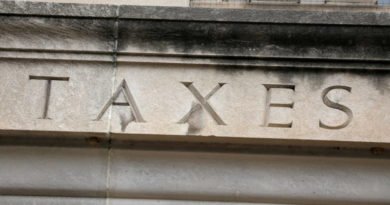Prigozhin’s unsurprising end, the WaPo’s ‘disinfo’ delusions and other commentary
Russia desk: Prigozhin’s Unsurprising End
For many “Russia insiders,” note Andrew Roth and Pjotr Sauer at The Guardian, the real question about slain Wagner Group head Yevgeny Prigozhin is “how he defied Putin and remained alive for so long.”
He “launched the June mutiny, rejecting an ultimatum from the defence ministry to subjugate his mercenaries to the military.”
No wonder “the Kremlin had clearly shown that it wanted to send a message,” and not with a “quiet killing.”
“There is little likelihood of a backlash in Russia,” but “the question remains as to whether” Wagner fighters “will switch allegiance.”
A grim fate for the man who “mounted the biggest challenge to the Russian state since Boris Yeltsin ordered his tanks to fire on Moscow’s White House during the 1993 constitutional crisis.”
Libertarian: The WaPo’s ‘Disinfo’ Delusions
Taking aim at a Washington Post news story that bewailed Donald Trump’s return to X (ex-Twitter), Reason’s Jacob Sullum thunders: “The piece nicely illustrates the confusion, obfuscation, and hypocrisy that characterize mainstream press coverage of” so-called “misinformation.”
The two reporters “never address the question of what counts as ‘misinformation,’ a highly contested category” and fail to “grapple with the content moderation problem of how to deal with politicians who say things of public interest that are arguably or demonstrably untrue.”
Amazingly, “they never mention the First Amendment” — “a pretty striking omission by people whose profession relies on that amendment’s protections and who claim to be worried about the health of our democracy.”
Polls show most GOP voters say Joe Biden didn’t legitimately win in 2020; the reporters seem to think “none of those people should be allowed to express that view on social media.”
The piece is “advocacy” posing as “straight news reporting.”

Eye on 2024: Trump’s Debate-Skipping Risk
Former President Donald Trump skipped the first GOP presidential debate “to deprive his competitors of any oxygen,” but long-term that approach “probably won’t work,” comments Politico’s Steven Shepard.
“As presidential primaries have become more national in scope, debates have arguably been all that’s really mattered in the run-up to the early states.”
Historically, “candidates sink or swim based on their debate performances.”
The debates “command larger audiences than anything else the candidates will do over the next six months . . . so it’s an unparalleled opportunity” for little-known participants and “peril” for hyped-up candidates.
While Trump now “has a huge lead in the national polling at this stage . . . he risks being upstaged.”
Conservative: Nikki Haley Won Round One
“Prime-time debates show who can stay effectively on message without being bogged down in the glutinous mire of their prepared remarks” and “the winner of the night [was] former South Carolina Gov. Nikki Haley,” asserts the Washington Examiner’s Hugo Gurdon.

“On most subjects, Haley was forceful, serious, and more self-assertive and aggressive than she has customarily been.”
One of her shining moments in the debate was dismissing Vivek Ramaswamy “witheringly in one exchange by saying, ‘You have no foreign policy experience, and it shows.’ ”
To “advance her from her lowly position in polls,” Haley “needs to sustain her new persona, not just confident but dynamic.”
Education beat: Don’t Make History Dull
Amid debates over school history standards, many overlook “the danger of making American history and civics dull,” remarks Jonathan Den Hartog at Real Clear History.
“There’s a long history of depicting both history teachers and the topics they cover as boring.” Additionally, teaching solely from textbooks is inoculating students “to the excitement of American history.”
Textbooks with countless pages reduce the past “to names, dates, and facts,” but “the actual past was anything but.”
Since “the real American past was dramatic, our presentations to students at all levels should mirror that reality.”
Having students imagine themselves in the situation, look at primary evidence and watch historical debates are all innovative ways to pass “on an appreciation for the drama of American history.”
— Compiled by The Post Editorial Board




